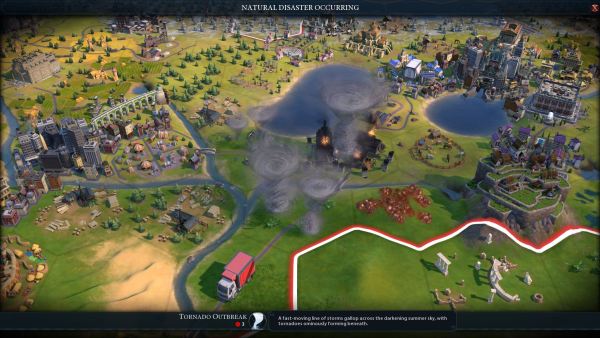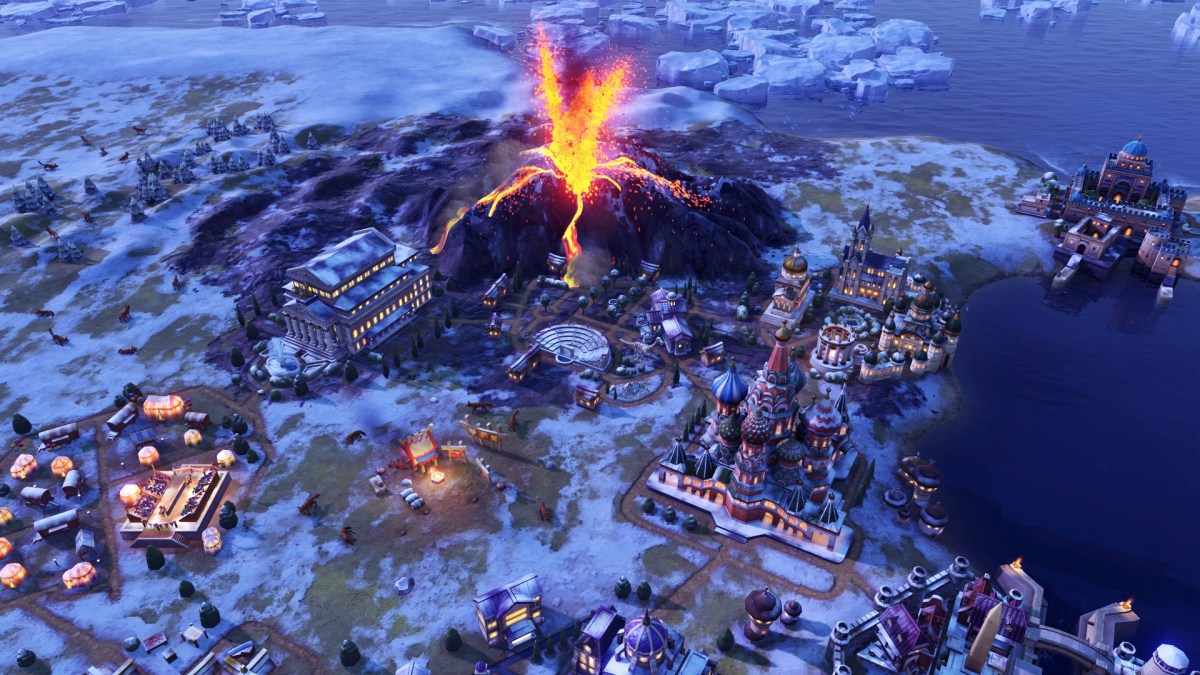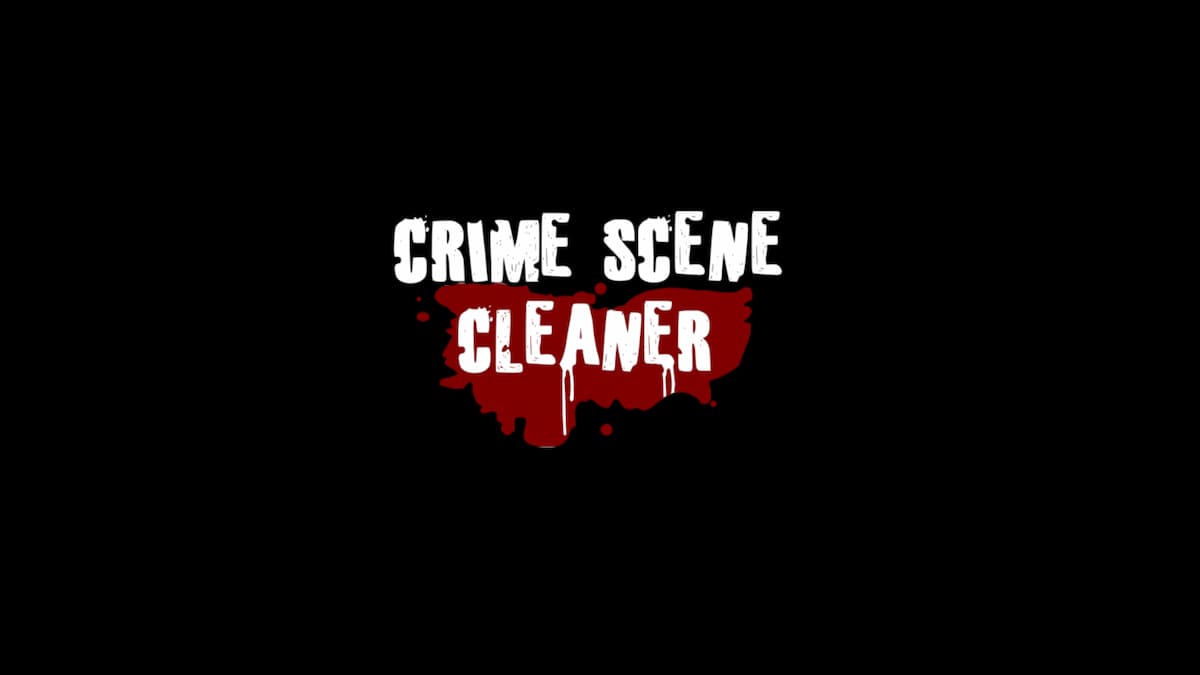Civilization VI: Gathering Storm on PC
If there’s one thing that has driven fans nuts since Civilization V released and steered the franchise in a brave new direction, is that diplomacy has consistently been a mess. Other Civs were by far the most unpredictable part of a Civ game, and not in a good way.
In spite of efforts to develop a friendly relationship and mind your own business, Civs would consistently just hate you for no reason and go to war. It never felt realistic.
Civilization VI: Gathering Storm seeks to stabilize diplomacy into something that can more easily be handled with care and nuance (finally), and adds a new feature that should be unpredictable and wild: weather and climate.
Let’s start with diplomacy, which includes a revamped and returning versions of the World Congress and the Diplomatic Victory condition, new grievances, and a new form of currency known as Diplomatic Favor.
While Rise and Fall made some small tweaks to help players understand what was going on with foreign relations, it didn’t improve it that much. The above changes serve as a proper overhaul.
The heart of all these changes is Diplomatic Favor. In brief, this is a currency that you accumulate slowly over time for being friendly. Make allies, buddy up with city-states enough to be their Suzerain, participate in new Global Competitions that benefit the world, and help other Civs in need, and you’ll have a proper advantage over anyone that’s not doing all of those things.

Hoarding Diplomatic Favor is the way to win and/or prevent someone from winning via Diplomatic Victory, and also to push through favorable world policy in the new world congress.
Every 30 turns starting in the Medieval Era, players can vote on resolutions that achieve goals, such as promoting/discouraging free trade, war, religions, etc. From the Modern Era and on, you can use your favor to award Diplomatic Points (2 points at a time) or vote to strip them away from someone (1 at a time). Accumulate 10, and you win the game.
Canada is an extremely fun new Civ to use which is tailor-made to win Diplomatic Victory games with a backdoor Culture win as a backup. Civilization expansions tend to always do an excellent job of creating Civs that leverage the new features, and Gathering Storm is no exception.
Diplomatic Favor is a crucially important currency, and isolating yourself from the world and starting crap with everyone will rightfully give you little influence in world affairs. It also pairs nicely with the new Grievance system to help you fully understand how other Civs view you, and each other.
If you’re a jerk to someone in any way, or vice-versa if someone is a jerk to you –getting caught spying, publicly denouncing, occupying cities, conquering local city-states etc.– you’ll generate something called Grievances.
This is a point system of sorts that basically gives whoever has a reason to be pissed off at someone else, a free pass to for a certain amount turns to be a jerk right back without drawing unfair ire from the international community.
Pretty much, it’s the reverse of the old schoolyard rule of the person who hits back getting in trouble. Nope, not in Civilization 6: Gathering Storm –go ahead and smack someone right back and your fellow Civs won’t take issue.
In my many hours of test-driving Gathering Storm, I found that all of these new changes forced the AI to be on much better behavior than normal. They were far more predictable and believable, and my game felt like it was on a much more realistic track because of it which is a major plus.
The headline feature of Civilization VI: Gathering Storm is, of course, the addition of weather, climate change, global warming, and natural disasters. While better diplomatic gameplay is something that is long overdue, a brand new take on climate change is something that feels fresh and new.
Civ 6’s take on climate change and global warming is extremely detailed, and feels incredibly realistic… maybe too real since once it’s full speed ahead, it’s very difficult to prevent long-term damage.
The foundation behind eventual climate change is the new Power mechanic which is added through the Industrial Zone districts. Using Coal, Oil, Uranium and other power sources (this would be a good time to quickly note that resources, in general, have been overhauled to be easier/more effectively managed), you can power up your distracts to be more effective.
However, as you can likely guess, burning up these power sources creates pollution. This, in turn, contributes to a phase-based climate change system that can cause polar ice caps to melt, flood and submerge tiles, and lead to more powerful and frequent deadly natural disasters which can set cities back many turns.

This creates a tantalizing quandary for players. Most people wouldn’t want to cause more storms, flood tiles (unless they are landlocked, of course, and have nothing to worry about), and all that other bad stuff. So perhaps you might choose to not take the low-hanging fruit and hold out for new green tech options which become available in the late-game?
However, just because you don’t burn up coal, doesn’t mean other Civs will follow suit. You could be setting your win condition back, and giving other Civs and advantage over you, which on the highest difficulties, is not acceptable.
Make no mistake about it, if you are wholly irresponsible about burning up power sources, you will rapidly cause climate change. In one of my games I played for this review, I had melted 80% of the polar ice caps and achieved maximum climate change by 1970, just by having coal/oil going in most of my (rather large) empire. Yikes!
As I alluded to, there is endgame tech that will allow you to use renewable resources like Wind, Water, and Solar, to Power your cities without guilt. Uranium is also a cleaner solution that is more effective even, but Nuclear Power plants will require you to spend some turns maintaining them lest you risk a meltdown which is a disaster itself.
In addition to all of the above, Gathering Storm like other expansions, makes small tweaks to preexisting features. Certain governors and tech/civics have been adjusted to take advantage of all of the changes.
There is a whole new tier of governments to take advantage, and super-advanced science/civic policies which supercharge specific gameplay styles in fun ways such as the Non-State Actor policy which allows you to choose from any Spy promotion you want or of course, the Giant Death Robots which are super-expensive but mega-powerful units which are key for achieving a Domination Victory.
We’re reaching the end of this review and I struggle to really find anything even remotely negative to say about Gathering Storm. It overhauls the game’s weak point –diplomacy– into something far more engaging.
It adds a radical “new” feature in climate change which forces all Civs, regardless of their goals, to give thought to things they wouldn’t normally care about such as sea-side tile building and utilizing resources. And it also improves the quality of life for pre-existing features such as adding new and exciting units, wonders, research, and Civs to make other win conditions and play styles more fun and fresh.
Put simply, Gathering Storm checks all the boxes of what a great expansion should be and is a must own for hardcore Civilization VI fans looking for a reason to spice things up in an incredibly positive way or get back into the game if they’ve been dormant.













Updated: Apr 12, 2019 01:30 pm